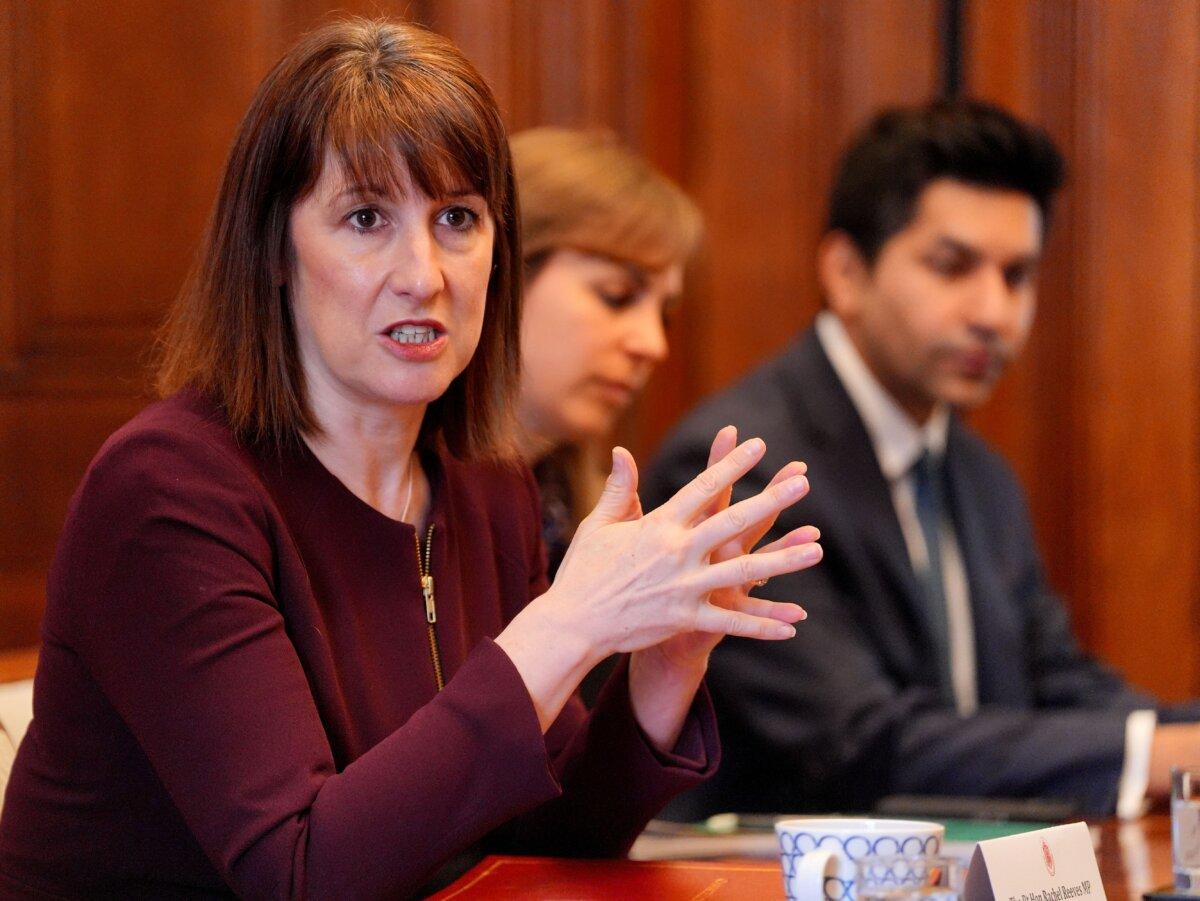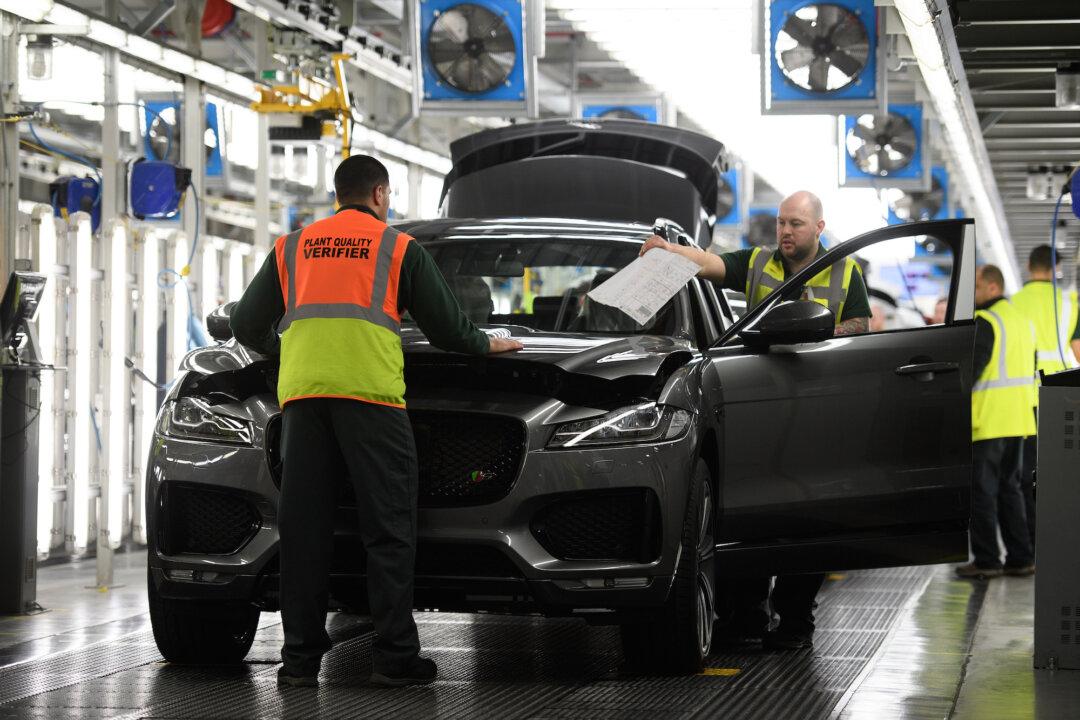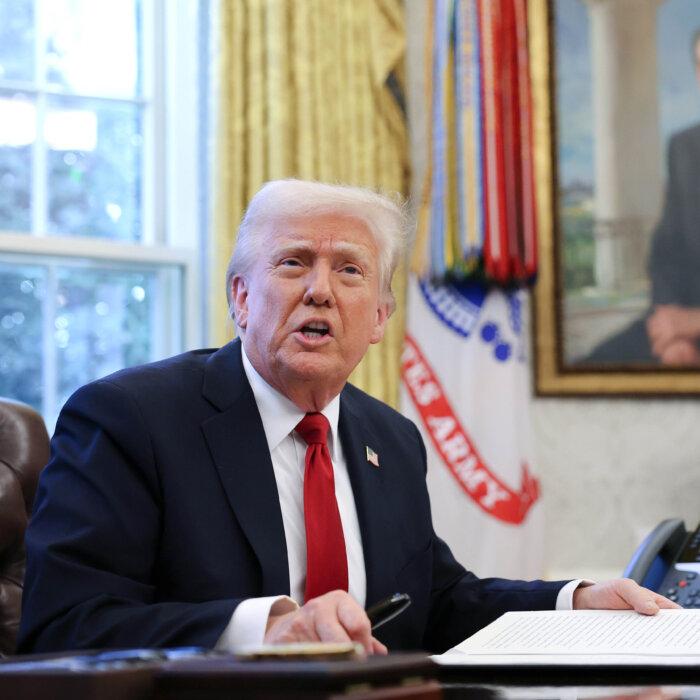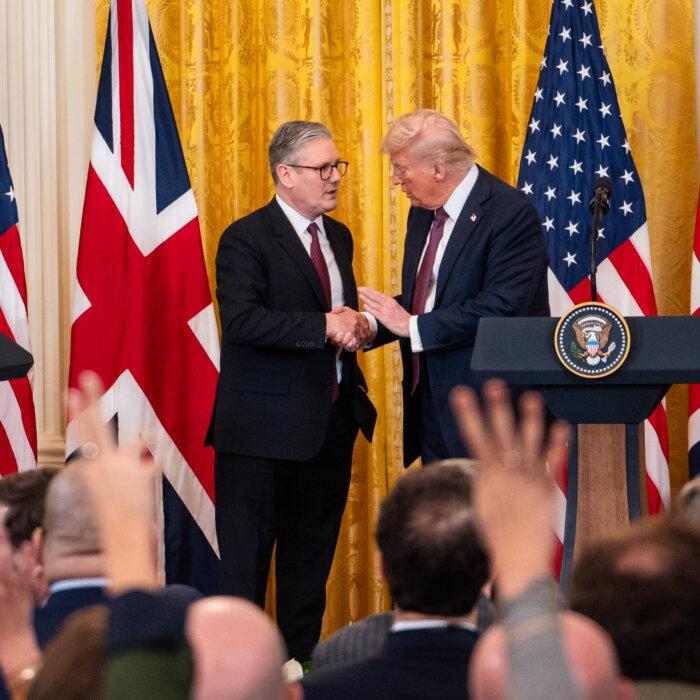The UK automotive industry has called on the British and U.S. governments to strike an urgent trade deal after President Donald Trump announced a 25 percent tariff on imported vehicles and parts.
The new tariffs, unveiled on Wednesday, apply to car and vehicle part imports into the United States, sparking concern from UK manufacturers heavily reliant on the American market.
Vehicles are the second largest contributor to UK goods exports to the U.S. after machinery, and the sector plays a significant role in supporting the UK’s GDP growth.
Major UK-based manufacturers such as Jaguar Land Rover, Aston Martin, and Rolls-Royce stand to be affected by the tariffs. Shares in Aston Martin, which is listed on the London Stock Exchange, dropped around 6 percent following the announcement.
Mike Hawes, chief executive of the Society of Motor Manufacturers and Traders (SMMT), described the move as “disappointing.”
“The UK and US auto industries have a long-standing and productive relationship, with US consumers enjoying vehicles built in Britain by some iconic brands, while thousands of UK motorists buy cars made in America,” he said in a statement.
“Rather than imposing additional tariffs, we should explore ways in which opportunities for both British and American manufacturers can be created as part of a mutually beneficial relationship, benefitting consumers and creating jobs and growth across the Atlantic,” he added.
He urged both governments to “come together immediately and strike a deal that works for all.”
Production in Decline
The tariff decision comes at a time of sustained decline in UK car and commercial vehicle production.February saw an 11.6 percent drop, with just over 82,000 vehicles produced, according to the latest SMMT figures. That marked the 12th consecutive month of contraction.
Export remained the primary outlet for UK-made cars, with 60,034 units sent abroad, an increase of 1.3 percent on the year. However, domestic production dropped sharply, down 33.3 percent to 13,780 units.
The United States accounted for 19.7 percent of car exports in February, with volumes rising 34.6 percent, despite overall shipments to the EU and China falling.
“These are worrying times for UK vehicle makers with car production falling for 12 months in a row, rising trade tensions and weak demand,” said Hawes. He pointed to the market transition to green vehicles as not keeping pace with government ambition.
‘Intense Discussions’
Prime Minister Sir Keir Starmer has said the UK automotive industry does not want a trade war with the United States and stressed the importance of taking a pragmatic approach in ongoing talks with Washington.Speaking to reporters in Paris on Thursday, Starmer said the government was engaged in “intense discussions” with the United States over economic arrangements, including efforts to mitigate the impact of recently announced tariffs on UK vehicle exports.
He described the current strategy as clear-eyed and pragmatic, arguing that “rather than jumping into a trade war, it is better … to come to an agreed way forward.”
Starmer said the UK would always prioritise the national interest, adding that “all options” remained on the table during negotiations.
“The industry doesn’t want a trade war,” he said, but insisted it was important to maintain flexibility in talks with the United States.
The comments follow Starmer’s visit to Washington last month and a follow-up meeting between Business Secretary Jonathan Reynolds and U.S. officials last week.

Talks Ahead of April 2
While economists suggest that a UK–U.S. deal would boost business confidence, investment, and growth, the U.S. tariffs decision has faced political pushback domestically.He highlighted the volume of UK car exports to the United States and questioned Starmer’s recent engagement with Washington.
“With the prospect of further 20 percent tariffs on all UK exports to the US next Wednesday, what exactly did Keir Starmer discuss with President Trump during his visit?” he wrote on social media platform X.
The 25 percent tariff on all imported cars and light trucks is set to take effect on April 2, while tariffs on auto parts are scheduled to begin on May 3. Trump has referred to April 2 as “Liberation Day,” indicating that further reciprocal tariffs aimed at addressing trade imbalances may be announced.
Reeves, speaking to BBC Radio 4’s “Today” programme on Thursday, said the government is “working intensely” with the United States to secure a deal ahead of tariff increases next week.
OBR Warns of Potential Economic Fallout
Meanwhile, according to fiscal watchdog the Office for Budget Responsibility (OBR), the chancellor’s £9.9 billion budget headroom remains vulnerable to the risk of further shocks, including changes to global trade.The OBR outlined three scenarios in which increased tariffs between major economies would hit UK GDP, exports, and inflation.
In the most severe case, where the United States imposes tariffs on all trading partners and those nations retaliate, UK GDP would fall by 0.6 percent by 2026–27. Inflation would rise by 0.6 percentage points in 2025–26, mainly driven by increased prices for imported U.S. goods.
The OBR cautioned that while trade diversion could offset some of the disruption over time, the short-term impact on exports and business investment would be significant.







